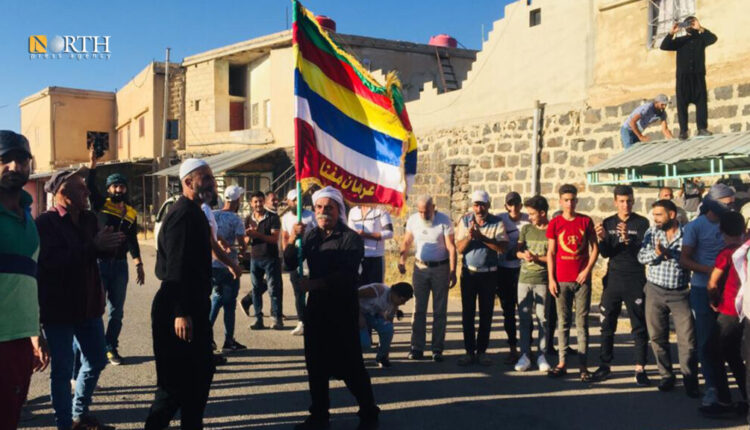
By Layla al-Garib
DAMASCUS, Syria (North Press) – Despite the ongoing protests in Suwayda Governorate, southern Syria, considered the most prominent event in recent years in the country, the Syrian government’s silence towards these protests dominated the situation.
The government was not only silent, but rather issued a new decision to raise the prices of oil derivatives, even though lifting the support on oil products and subsequent spike in prices directly caused protests never seen before in Suwayda and unprecedented opposition in the Syrian coastal areas.
Indifference
The state of indifference with which the government dealt with the protests in southern Syria holds a kind of concern and apprehension according to some observers.
A Syrian journalist told North Press that, the government’s decisions seem irreversible because canceling these decisions would mean conceding and this is what the government does not want to appear it is forced to do.
He added, “The government went beyond indifference,” by issuing two decisions to raise the price of gasoline (octane 95) a few days ago. Although, it clarified that the increase includes oil products that private companies sell to the private sector, it is known that any increase in fuel prices for the private sector will directly lead to a similar increase on the goods produced by that sector due to the high cost.
The government issued two decisions to raise the price of a liter of gasoline (octane 95), from 13,500 Syrian pounds (SYP) to 14,700 SYP, in addition to increasing diesel prices from 11,500 SYP to 12,800 SYP.
Slight increase
The measure was met with disapproval. It seemed as if the government was detached from reality and what was happening on the ground. This made the government to reduce the income tax rate and raise the minimum rate exempted from taxes from 50,000 SYP to 185,940 SYP (equivalent to about $12.5, based on the exchange rate of one US dollar in the market on the day of issuing the decision).
The decision was supposed to be issued simultaneously with the decree on increasing salaries by 100 percent. It soon became clear that this increase would be subjected to high tax rates, unless the law was amended.
The decision to increase salaries coincided with the decision to stop subsiding fuel. Additionally, the decision to raise the minimum limit of income exempted from taxes coincided with a new decision to raise gasoline and diesel prices in the private sector. In both cases, the government would receive more money than it would pay, as the decree to raise prices is put in effect immediately, whereas salary increases will be effective this month.
Stability in Suwayda
The state-run media almost entirely ignores what is happening in Suwayda. They describe it as actions of a few or dozens of individuals and depict the situation as if the majority of the people are pro-government and hold on to the “national sovereignty.”
Al-Watan newspaper publishes more articles than government newspapers under the title “The city of Suwayda continues to recover and returns to normal life.”
The newspaper interviewed Lebanese Democratic Party leader, Talal Arslan, who said “The people of Jabal al-Arab with their sheikhs are steadfast and cannot be manipulated by some people with suspected relations to external parties.”
“Less than 150 people mostly from local factions ended the tenth day of protests in Suwayda,” the newspaper said in a report published on Aug. 30, under the title “the protests diminish… people of Suwayda try to revive their city.”
